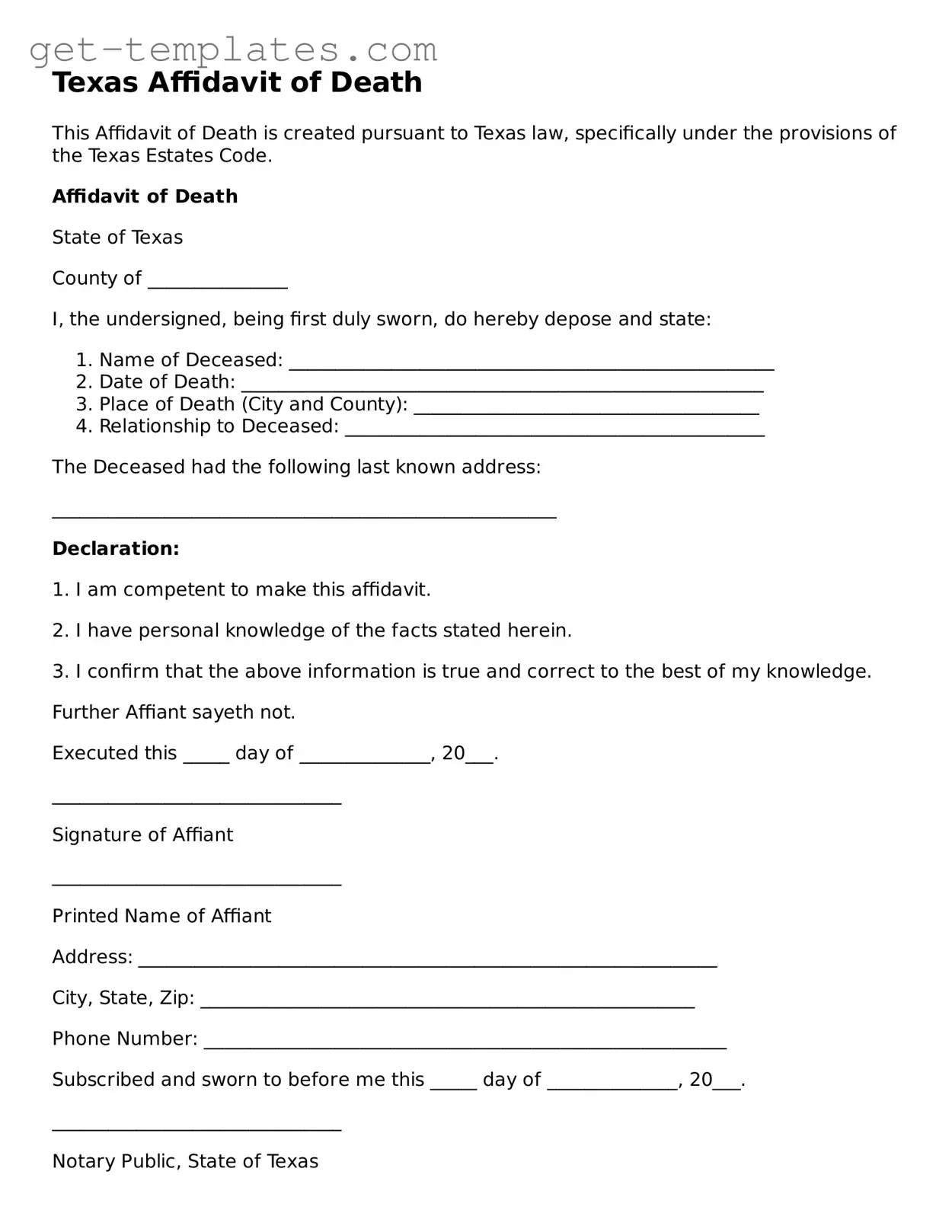Attorney-Approved Affidavit of Death Document for Texas
The Texas Affidavit of Death form is a legal document used to officially declare the death of an individual. This form serves to provide necessary information about the deceased and is often required in various legal and administrative processes. Completing the affidavit accurately ensures that the estate and related matters can be handled appropriately.
Get Document Online

Attorney-Approved Affidavit of Death Document for Texas
Get Document Online
You’re halfway through — finish the form
Finish Affidavit of Death online — edit, save, download made easy.
Get Document Online
or
⇓ PDF Form
